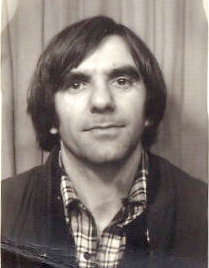Rudi Dutschke | |
|---|---|
 | |
| Born | Alfred Willi Rudolf Dutschke 7 March 1940 |
| Died | 24 December 1979 (aged 39) Århus, Denmark |
| Alma mater | Freie Universität Berlin |
| Known for | Spokesperson of the German student movement |
| Spouse | |
| Children | 3 |
Alfred Willi Rudolf "Rudi" Dutschke (German: [ˈʁuːdi ˈdʊtʃkə]; 7 March 1940 – 24 December 1979) was a German sociologist and political activist who, until severely injured by an assassin in 1968, was a leading charismatic figure within the Socialist Students Union (SDS) in West Germany, and that country's broader "extra-parliamentary opposition" (APO).
Dutschke claimed both Christian and Marxist inspiration for a socialism that rejected both the Leninist model of party dictatorship that he had experienced as a youth in East Germany, and the compromises of West German social democracy. He advocated the creation of alternative or parallel social, economic and political institutions structured on the principles of direct democracy. At the same time, he joined Moscow- and Beijing-oriented communists in hailing Third World national liberation struggles as fronts in a world-wide socialist revolution.
Controversially for many of those who had protested with him in the 1960s, Dutschke in the 1970s styled himself a patriotic socialist ("Pro Patria Sozi"), and called on the left to re-engage the "national question" and seek a bloc-free path to German reunification.
Shortly before his death in 1979 from complications arising from his injuries in 1968, Dutschke was elected as a delegate to the founding congress of the environmentalist and social-justice Greens. It was a project then understood as the creation of an "anti-party party", engaging with parliamentary politics but remaining a grass-roots movement.